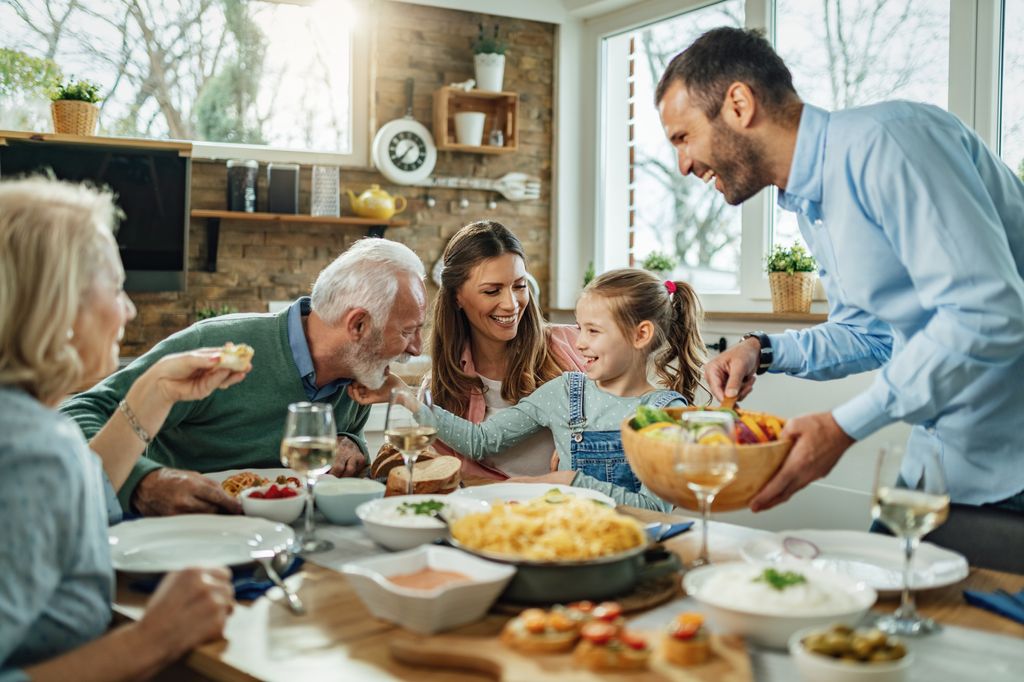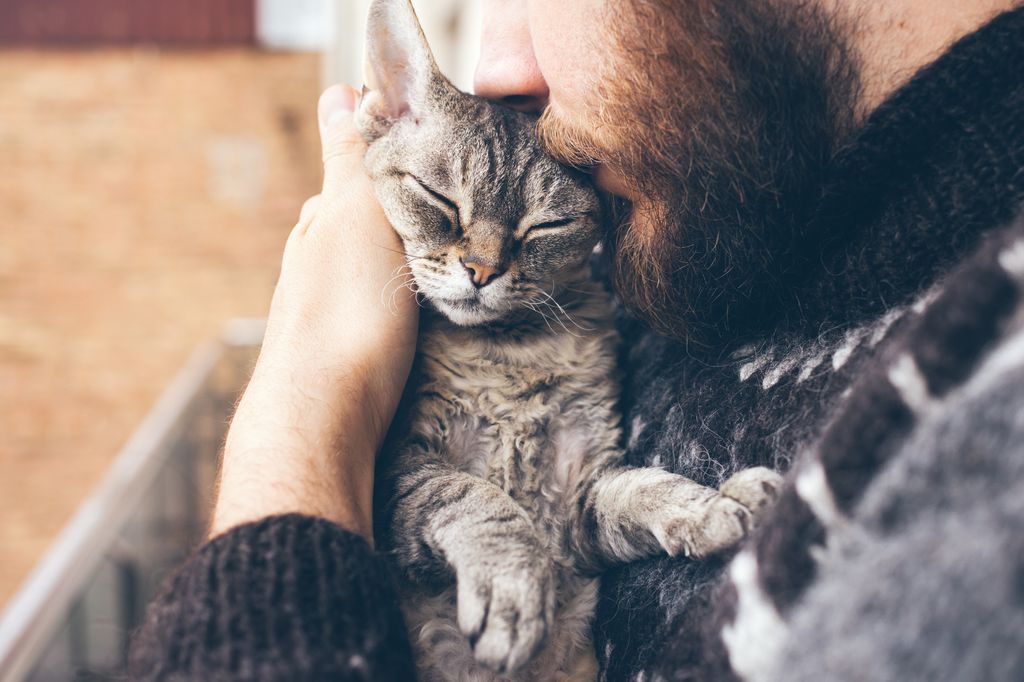You know that 'my heart is full' feeling you get when surrounded by family and friends? That’s the work of love hormone oxytocin, and when it’s whizzing around in our brain, we likely feel at peace and content.
But since the pandemic, it seems that these uplifted feelings of a sense of belonging have become harder to come by, and reports have suggested that we are more lonely than ever. According to Headspace, 45% of adults, equating to over 25 million people, often feel lonely.
In fact, chronic loneliness is affecting up to 1 million more people in the UK than before the pandemic, and the number of people who say they 'often' or 'always' feel lonely has grown from 2.6 million people in 2020 to 3.3 million people as of February 2022.
“As humans, we are social beings, we are wired for connection and all long for a sense of belonging," says Dora Kamau, mindfulness and meditation teacher at Headspace.
"That overwhelming feeling of sadness or despair we may experience when we feel all alone and that we have no one is negatively reflected in our physical and mental well-being.
RELATED: How to be happier: 21 expert-approved tips to become your most optimistic self
"Science has shown that individuals who experience loneliness, especially prolonged states of loneliness are prone to increased inflammation in the body leading to physical and mental illness."
To help us lower those feelings of isolation that are encroaching on our lives, we put together some simple tools to beat loneliness and in turn, increase our happiness - and we're pleased to report that some of the expert advice we received can help us feel less lonely in just five minutes.
1. Schedule time with friends and family in your diary
“The family environment gives us unconditional love and a sense of belonging,” explains relationship expert Anna Williamson.
“Families come with nostalgia and memories, and this supports production of the love hormone oxytocin and feel-good chemical dopamine. When our feel-good memories are flying around, we feel a lot more stable and a lot more content.”
Harvard’s famously long-running Study of Adult Development backs up Anna’s standpoint, finding that social connections are one of the most important factors for people's happiness and health.
“Every Sunday, without fail, I have Sunday lunch with my parents, my brother, my husband and my children,” Anna explains. “It's a focal point of the week. We can offload from the seven days before and set up for the week ahead. We debrief, get counsel and it's one of the most powerful and important things we can do for ourselves.”
DISCOVER: Why you'll never be happy without this one key thing
Psychologist Dr. Emma Hepburn reiterates the importance of time with family and friends, urging us to make it a priority, not just something we fit in around work and admin.
“Make time with friends a key activity, not an add on to fit into your schedule,” she advises. “Create regular times or traditions, for example make a deal to meet every Friday, the last day of the month or every other Thursday.” Creating a plan means you’re more likely to make time for it.
2. Communicate during difficult times
Dr. Emma confirms how important our loved ones are during difficult periods. “Spending time with supportive friends and family reduces the impact of difficult events, because they validate our emotions and help us talk though and process our feelings. “Friends help buffer stress by making us feel safe and helping us problem solve,” she adds.
“When I’m feeling low, my siblings are the first people I turn to,” says HELLO! lifestyle writer Tania Leslau, 24. “If I’m in a bad place, it feels like there's less pressure to be on good form with my brothers as opposed to my friends.”
Tania’s not alone in turning to her family when she’s not feeling great; Anna explains that our family is our bedrock, allowing us to be our true selves and let our guard down, which is crucial for happiness.
READ: 'I cried myself to sleep every night – until I tried this simple trick'
“When we don’t have that network, we can feel vulnerable, which makes us feel anxious with a low mood, we can feel desperate and we can start to experience trust issues,” says Anna.
“When we’re feeling down, our family and friends are a source of comfort, of strength and of guidance, where we can be our truest selves,” she continues, before noting that family can mean so much more than blood relations, with friends and pets part of many of our family networks.
3. Spend time with your pets
Studies show that our pets help us de-stress and banish loneliness. When time is short and family is far away, a beloved pet can provide the comfort we crave for happiness and stability.
“Pets are uncompromising and can give an enormous source of comfort,” Anna explains. “In fact, pets are proven to be incredibly beneficial for reducing anxiety and low mood.”
Our furry friends can boost dopamine and oxytocin, plus, as Anna says, they’re fluffy and lovely and they give unconditional affection.
RELATED: I tried puppy yoga for the first time to see if it made me happier
One person who felt the benefit of having a pet is PR director Sophie Lowe. “I went through a terrible unexpected breakup, and my cat Bella made all the difference.
“I had moved away from my family, so when my ex moved out very suddenly, I felt totally alone. I found myself avoiding going home and spending my evenings out with friends and then getting up and out early for work the next morning.
“I remember crying over the Christmas holidays after spending so much time with my family about not wanting to go back to my house on my own. Luckily for me, the year before I had bought my British Shorthair cat Bella, and she was the only thing that made me want to go back to that house. She was a little presence there all the time, waiting for me to come home and she’d sleep with me in bed every night. I felt so relieved coming in the door when I’d see her sitting on the stairs waiting for me.”
Bella was also there for Sophie when she gave birth to her son Albie two months early. “While he was still in hospital, I had to pump milk every three hours, so I’d be up through the night, still healing from my emergency C-section, pumping my milk and pining for my newborn.
“Every time the alarm went off in the night for me to turn the pump on, I’d hear a bang from Bella jumping down from her bed and heading straight to my side. She’d stay there for the whole time, before heading back to her bed when it was time for me to sleep again.”
READ: What is craniosacral therapy and will it make me happier? A life coach explains all
4. Try FaceTime – it's better than no time!
Sadly, we’re not all lucky enough to be surrounded by our familial safe haven, and Anna notes that with the ever-rising petrol and train ticket prices, it’s not always easy to afford meals out with family and friends or transport to get to our loved ones. And this is where technology comes into play.
While phones and tablets get a bad reputation for distracting teens at the dinner table and alienating us from one another, Anna considers them a saviour when it comes to making time for our family and friends in these trying times.
“I love that everyone adopted family Zooms in the pandemic,” she says. “So many more people started to see and speak to their family en masse, it was a really lovely thing. My parents are in their seventies and live in the middle of nowhere, and if they hadn't had WhatsApp or Zoom, they wouldn't have seen their friends for two years, it kept them feeling included.”
Family and friendship groups on WhatsApp are also a quick and easy way to let family know you’re thinking of them and are a clever way to update regularly, as opposed to a massive biannual gathering where you catch up, Anna adds, singing the praises of group chats for staying in touch with loved ones near and far.
Looking for more happiness inspiration? Watch our video for easy ways to feel instantly happier...
This feature is part of HELLO! Pathway to Happiness, your ultimate guide on how to be happier. Sign up here to learn more.













